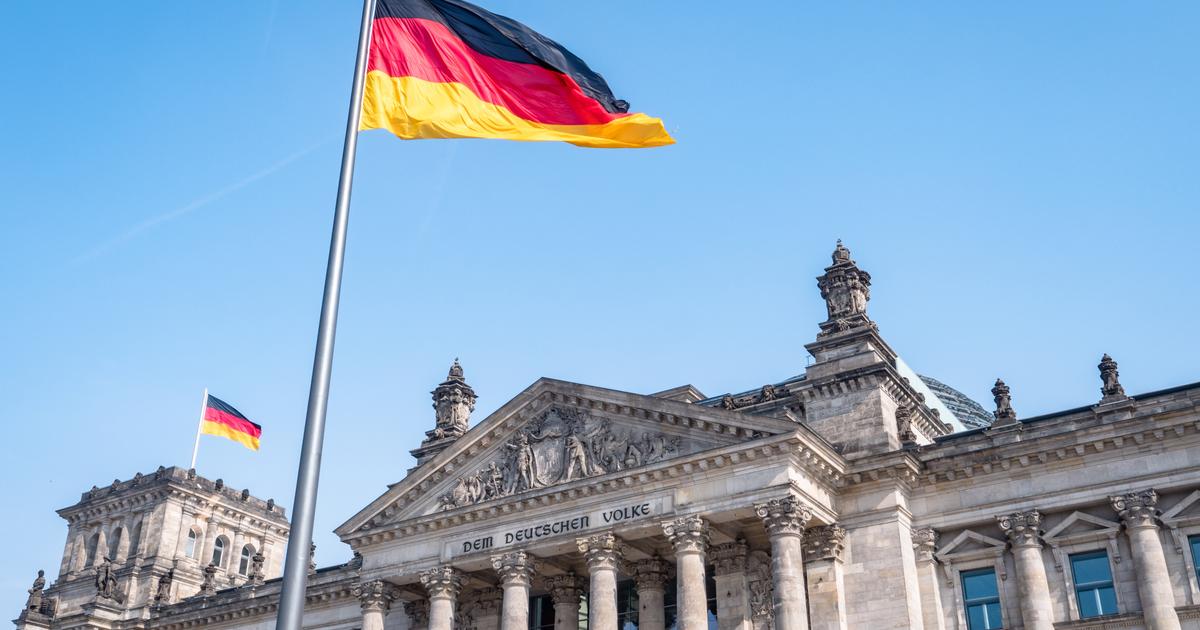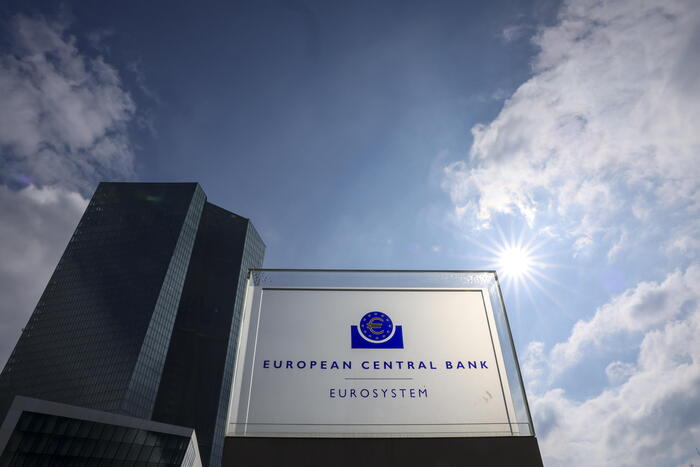Enlarge image
Natural gas pipelines (in Stuttgart): Heating and refueling are becoming more expensive
Photo:
Marijan Murat / dpa
A week ago I warned at this point that one or the other company is taking the war in Ukraine as an opportunity to enrich themselves with their customers.
Unfortunately, as it turns out, there are quite a few.
And because there are also many in the energy sector, inflation could jump to eight percent for March.
But don't just accept that and adjust your investments if they are not yet well positioned.
The price development is rapid: the umbrella organization of utilities BDEW and the comparison portal Verivox reported this week that the gas price has risen from 6.65 cents per kilowatt hour last spring to 13 cents now.
Esyoil reports an increase in the price of heating oil from 60 cents in March 2021 to 1.70 euros on average nationwide.
And ADAC calculates that Super E10 has risen from 1.45 euros in March 2021 to 2.20 euros now, and diesel even from 1.31 euros to 2.30 euros.
The rise in the price of crude oil does not explain these prices at the petrol stations.
The Federal Minister of Economics has therefore now asked the Cartel Office to take a close look at the prices.
The possible allegations: price fixing and speculation at the expense of consumers.
According to the Federal Statistical Office, direct energy costs make up around ten percent of the average person's shopping basket.
With the increases described above and inflation of three percent for the remaining 90 percent of the basket (rent, groceries, etc.), inflation in March would be just under eight percent.
What can and must you do?
Two things in particular.
First, lower your personal inflation rate
Save energy.
Even if you can no longer hear it.
In the flat:
Install a new thermostat and set the room temperature to 20 degrees – from the currently likely 22 degrees.
Ask the plumber to carry out a hydraulic adjustment so that your heating system is optimally adjusted.
New thermostats and plumbing services are subsidized at 20 percent.
At night and when you are not at home, turn the temperature down a little more.
Ventilate properly, i.e. intermittently, do not open the windows for hours.
If you have to buy heating oil, buy little and do a price comparison.
Perhaps the political pressure will help to lower prices for customers a little and limit consumer rip-offs.
If your gas contract expires, temporarily choose the least expensive (there is no such thing as cheap at the moment) with a short term.
A total of 24 points came together in the Finanztip newsletter on saving energy.
In the medium to long term, it makes sense to modernize the heating system and better insulate the house.
After all, the dilemma most consumers face is that their heat requirements are high.
However, compared to the past ten years, fuels will remain rather expensive.
Don't rely on prices going back to 2020 levels.
For mobility:
Driving a fuel-efficient car.
160 km/h is a third more expensive than 130. 100 km/h brings a lot more, your car probably even has cruise control.
The ADAC shows in videos how 20 percent of fuel can be saved just by driving appropriately.
more on the subject
Massive price increase: That's how long consumers in Germany have to work for a liter of petrolBy David Böcking
Correctly inflated tires, removed roof rails and a car that is not used as a warehouse also help.
Every extra kilo in the trunk costs petrol and therefore money.
The roof rails increase fuel consumption by one liter per 100 kilometers and an additional 50 kilos in the car require an additional 50 liters of fuel per year if you drive 15,000 kilometers.
Use a tank app.
The price differences are up to 20 cents at the same time.
If the Cartel Office takes action against possible price agreements, all the better.
Also compare the other prices.
Not only on Saturdays when shopping at the discount store over the weekend, but also for all major purchases – with price search engines such as Idealo.de or billiger.de.
Second, keep your savings safe
However, that is easier said than done.
At its core, a successful strategy boils down
to planning your money investments better
.
You need three pots for this.
The first is your checking account
, which is where you hold your monthly money.
Choose an account that costs nothing or low fees.
Older customers in particular are often sold account models for which they are expected to pay more than 200 euros a year.
You can avoid that.
Make sure all bills are paid on time.
Dunning fees and collection costs make life unnecessarily expensive and endanger your creditworthiness if you ever need a loan.
When choosing a checking account, it doesn't hurt to also look at what overdraft interest is due in case of doubt if you have to overdraw the account.
The second pot is your money market account
.
There you park your iron reserve.
Don't have an iron reserve yet?
Then now is the time.
Two to three months income should be there.
The interest is negligible, it is important that your call money account helps you to avoid the overdraft facility.
The overdraft interest is ten percent at many banks.
It's even worse if you lose your job or your business isn't doing so well.
Because then the banks could curtail your overdraft facility overnight and thus limit your financial ability to act.
Create space for yourself.
Every euro too little in your emergency account may later cost you a lot of interest and get you into trouble.
more on the subject
Energy costs: coalition agrees on doubling the heating cost subsidy
Exploding energy prices: How to save additional costs now - and who gets help from the stateBy Anne Baum and Sebastian Maas
On the other hand, you can also invest an additional part of the money in the call money account so that it is protected against fluctuations, then the success of the entire investment is not so dependent on the development of the stock market.
You then decide that you can bear the corresponding loss of purchasing power better than fluctuations
on the stock market
if inflation is five or more percent .
Besides, you can
you may avoid the bank's custody fee if you split larger amounts into a current account and overnight money.
Third pot: your deposit or your investment.
If inflation is more than five percent, every euro that you have too much in your emergency account is a euro whose value will shrink significantly.
You should therefore really invest your money beyond the current account.
There are always strategies that involve investing in real assets.
The simplest investment in tangible assets is the purchase of shares, i.e. the purchase of company shares.
And that, in turn, is easiest if you buy funds – preferably index funds that copy a global stock index.
This type of investment has a number of advantages – and one key disadvantage.
First advantage: You can start saving here with 25 euros per month.
So it works for everyone, no high income or assets are necessary.
Second advantage: In the past, such an investment has almost always produced very nice returns over the long term.
After 15 years, losses were practically impossible.
Third: You can still get your money or part of your money at any time.
more on the subject
Share investment: How to find the right depot for the start on the stock exchange A column by Hermann-Josef Tenhagen
Fourth: The system is structured in such a way that it can absorb losses in times of crisis.
If Europe goes into crisis with war, your investment in the US or Japan can still be successful.
Figuratively speaking, you never have all your eggs in just one basket that could break.
The main disadvantage remains, of course: in the short and medium term, stock prices fluctuate significantly, even in a global index.
If you then have to sell many shares, you may be left with losses.
Of course, you can also invest in tangible assets with a property that you buy now - not too expensive with a comparatively cheap loan.
For personal use or for renting.
The housing shortage suggests that renting will also be possible in the future.
Very important: If you take out a loan now, please plan for the long term.
Because if interest rates should rise in a few years, you can leave it cold - if your financing runs for 15 years and you minimize the risk of your financing ever falling on your feet with a proper repayment.
Invest in tangible assets, this can also be the energetic modernization of a property that you already own.
With energy prices soaring, that's a good idea.
However, many others have now also come up with them.
So you first have to find the right tradesman – and you should always compare prices here as well.
Unfortunately, there are also crooks in the trades who are taking advantage of the current situation and charging their customers crazy prices for services and projects that were significantly cheaper last year.
The most important thing is that you follow a plan when investing.
Because not being liquid at the wrong time is expensive.
And being too liquid for too long degrades the value of your investments, especially during times of inflation.




